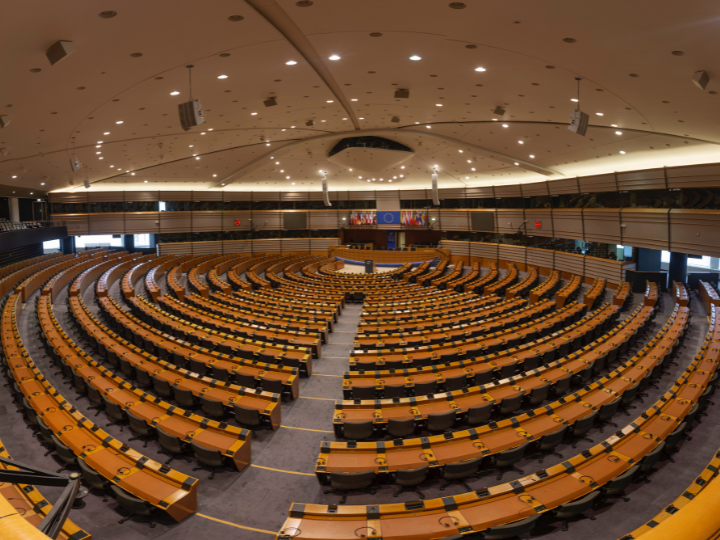The European Union may impose limits on Chinese textiles like T-shirts after a huge surge in imports.
The move, agreed by the EU's textile committee, comes amid escalating anger in the EU and the United States over Chinese textiles flooding markets.
The EU now wants to launch formal consultations with China under World Trade Organisation rules.
China recently said it would raise export tariffs in 74 categories to address concerns of trading partners.
The EU's textile committee said imports of Chinese T-shirts had soared 187%, while flax yarn imports were up nearly 60%.
China is the winner
Bilateral consultations about the dispute will be next on the agenda. On Tuesday evening, EU trade commissioner Peter Mandelson will meet China's special textiles negotiator Gao Hucheng.
Under World Trade Organisation rules, the EU could impose import limits within 15 days of the formal start of negotiations if China fails to curb its exports.
Until January this year, the global textile trade was governed by the 30-year-old Multi-Fibre Agreement, which set import quotas for each country.
China has been the big winner of the new trading system, while many developing countries have lost out.
Mr Mandelson said he did not want a return to the old system of long-term quotas, but said European producers needed to have some breathing space.
China limits export surge
The United States has already imposed limits on Chinese textile imports.
The US textile industry says it has lost more than 16,000 jobs since the start of this year.
The EU's move is much more limited, but did not gain universal approval. Both Sweden and the Netherlands reportedly voted against it.
But the other 23 EU member states agreed with Mr Mandelson's position to target specific Chinese products with "interim import growth restrictions".
On Friday, China had raised export tariffs on 74 textile product categories by up to 400% in an attempt to defuse the trade row.
Yuan worries
The conflict has been exacerbated by long-standing US accusations that China is deliberately keeping its currency undervalued in an attempt to boost exports.
However on Monday the president of the European Central Bank, Jean-Claude Trichet, for the first time joined those saying the Chinese yuan - and therefore Chinese exports - should be made more expensive.
"The ECB is [...] of the view [...] that the currencies of a number of Asian emerging countries are undervalued against major international currencies, in particular the euro and the dollar. "This is the case of the Chinese currency but not only the Chinese currency, but as I said, of a number of emerging Asia currencies," Mr Trichet said.




 By: N. Peter Kramer
By: N. Peter Kramer

